Humanitarian challenges 2017: ICRC Colombia Report
… have any roads or aqueduct here, there are no jobs, there is no work. This all creates … safer place and, therefore, to abandon their jobs and their roots. As a result, these …
… have any roads or aqueduct here, there are no jobs, there is no work. This all creates … safer place and, therefore, to abandon their jobs and their roots. As a result, these …
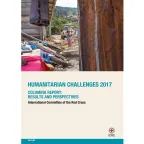
… in the infrastructure that supports people’s jobs and livelihoods, such as functioning …
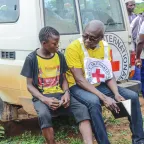
… Ashfaq Yusufzai, “Specialist Doctors Quit Jobs to Join LRH”, Dawn News (9 June 2017) KP … compulsory to apply for in-house hospital jobs. Noti cations are legally binding. v. The …

… 2017. • P&O in Togo have difficulty finding jobs after graduation. Our engagement in the … of the UNCRPD, and workshops on creating jobs for PwDs and international cooperation in … with our support, left the SEOP to seek jobs abroad – in part, because of the …
… workers with the tools they need to do their jobs effectively, the ICRC helps to improve …
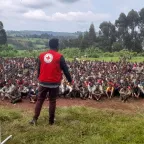
11-10-2017 ICRC, IFRC, and UNOCHA release a brief guide for humanitarians. The International Committee of the Red Cross (ICRC) and the International Federation of Red Cross and Red Crescent Societies …
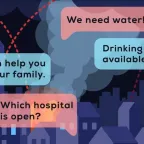
In 2019 Venezuela experienced an increase in social tensions, and its economic and social situation deteriorated, giving rise to a shortage of essential goods, health care, and other essential …
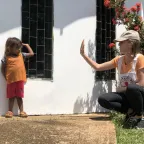
In 2022, Yemen will hit the 8-year mark since the onset of the devastating conflict that has since affected millions of people across the country. Lives have been lost, families shattered and …

ENGLISH Present in Iraq since the Iran-Iraq war in 1980, the International Committee of the Red Cross (ICRC) focuses on addressing the consequences of armed conflicts and other situations of …
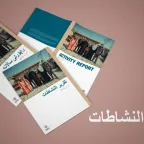
… a society going – education for its children, jobs for its adults, security for its most …
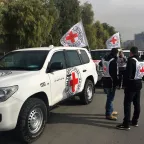
Try one of the following resources:
Created in 1863, the ICRC library, alongside the ICRC archives, provides an indispensable documentary reference on the organization itself and international humanitarian law.
International humanitarian law is based on a number of treaties, in particular the Geneva Conventions of 1949 and their Additional Protocols, and a series of other instruments.
Customary international humanitarian law consists of rules that come from "a general practice accepted as law" and that exist independent of treaty law.